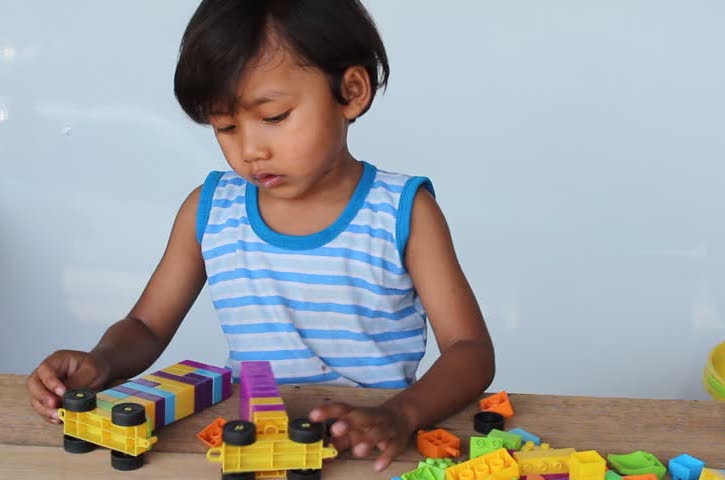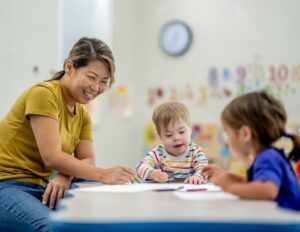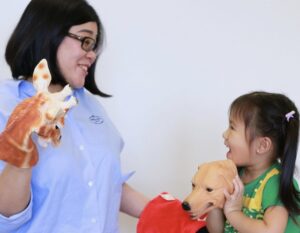




Child psychologist Upasana Bondopadhyay explains where kids get their self-confidence from (and how they can lose it). Don’t miss this valuable expert advice, mamas!
Ashley is a 7-year-old girl who is extremely social and inquisitive about learning new things. She is aware that she is good at Math, one of the best students in her Ballet class, and bakes the most scrumptious cakes (enjoyed by her family members).
One day, she was playing at the neighbourhood playground when she slipped off the swing and fell down to the ground. Fortunately, she was not badly injured but was really upset by the laughter of the children nearby. They were laughing at her. She returned home and refused to go to the playground for the next two weeks. When asked by her mother, she confessed that she was not good at balancing on the swing and did not want to embarrass herself further.
She said that she was not “good enough” to play with the other children at the playground. While her mother tried to remind her of all the things she is good at, Ashley was fixated on what she was not.
Low self-confidence is when an individual is aware of the things he/she is capable of doing but goes through a process of self doubt and starts feeling inferior to others.
A healthy self is one that, although not devoid of weaknesses, is very sure about its virtues. Self-confidence stems from self esteem, be it related to the physical, psychological, professional or ethnic qualities. Self-confidence is an important concept that potentially shapes a person’s life because it determines how one thinks about themselves and others and the subsequent actions they take for themselves and with regard to others.
A similar occurrence occurred to Ron, a boy who loves playing at the playground. After falling from the swing, he simply dusted himself off and climbed back up on the swing.
What made Ron react differently? Although both Ashley and Ron remember being good at specific activities for which they have experienced concrete appreciation from others, Ron remembered his mastery in these activities when other kids laughed at him. Therefore, while both the children had others laughing at them after their fall, Ron’s thought process varied from Ashley’s. This difference in thought process is directly influenced by the magnitude of self-esteem.
Why some children lack self-confidence
There are various reasons behind lack of self-confidence and self-esteem amongst children. There is a strong co-relation between the role of parents and caregivers in shaping these constructs. Let us take a closer look behind this:
- Children are typically aware of their talents and abilities but to internalize these they need a strong system of encouragement. This system of validation gets incorporated within the child’s identity and in turn influences the person’s self-worth. Therefore, those children who lack receiving encouragement regularly from their parents/ caregivers are more prone to self-doubt and a weaker self-worth.
- Sometimes the unintended criticism of a child reduces his level of confidence because it gives the child a pessimistic message about himself. This leads to the child thinking that he is not capable to succeed in activities, thus experiencing fear or anxiety when a task to be completed is on the horizon. The child might react either by avoiding it completely or utilizing unrealistic coping mechanisms to deal with the fear. This is called “defensive pessimism” (a term coined by Norem and Cantor in 1986), where a person imagines all negative turn of events in order to reduce their level of fear before a task. In children, this might prevent them from performing to the best of their ability.
- This anxiety in a child with low self-confidence might even be influenced by an anxious parent who exhibits an attitude of over-protectiveness, inadvertently steering the child away from independence.
- Sometimes negative comparisons with other children makes a child feel inferior, and this can lead to the child devaluing himself/herself. Although the aim might be for the child to emulate the desirable behavior of another peer, this causes the child to feel hurt. Youngsters sometimes involuntarily become the subject of achieving their caregiver’s goals, be it an academic, athletic or specific skill-related endeavor. Though setting goals is not wrong, it is much more effective if the goals are designed with the child’s strengths and weaknesses in mind. A child who has difficulty offering sustained attention cannot realistically be expected to pay attention to one task for a period of one hour. The child’s inability might lead to him/her falsely believing that he/she does not possess the prerequisites to understand or complete the task content, which can detrimentally affect the child’s self concept.


Strategies to build on a child’s self-confidence levels
- Children learn primarily through observations. The subjects they are most likely to emulate are their parents and caregivers. Providing children chances to observe confident behaviors is a good way to enhance self-confidence in them. One simple way would be to use optimistic statements such as “I am happy I could do this much today, but this is just the start, tomorrow I will try again”. For older kids, try using metaphors such as “practice makes perfect” or “accelerating towards success”. This can be considered a way to indirectly introduce self-instructions that enhance confidence.
- Giving greater importance to the journey towards a goal rather than a goal itself can make the child feel more confident. If everything is left dependent on winning or losing, then the skills mastered by the child in his/her efforts towards the goal would not seem important to that child. The very awareness of the mastered skills allows the child to try again and have confidence in herself/himself with regard to a particular task. For example, while solving the first problem sum, the child learns that he has to add up two given quantities. He learns that the word “total” equals the sum of all the quantities present. However, while doing the sum he makes a mistake and therefore does not reach the correct answer. Here, if the child’s newfound knowledge of the word ”total” is emphasized rather than his incorrect answer, he would focus more on his effort. The child therefore develops confidence in the idea that through effort he can learn new tasks successfully.
Read More: The Importance of Growth Mindset, and How to Boost It (with free printables!)


- Research has repeatedly validated the importance of positive reinforcement, such as praise from parents, teachers and caregivers. If criticism can impact a child detrimentally causing him/her to doubt themselves, the opposite can equally build confidence in a child. Praise acts as an acknowledgment from the larger environment that he/she is on the right track and the child feels motivated to continue putting efforts. Using statements such as “Great job!” or “Hey, that is interesting!” builds direct confidence in a child which is even more impactful when coming from a significant caregiver.
- Building independent skills in the child directly leads them to develop confidence in their abilities. This can be practiced in simple day-to-day chores, for instance. A child who is allowed to try a new technique for arranging his clothes in his cupboard might develop a different level of self-reliance which is not just limited to repeating how mum had previously arranged his cupboard. Encouraging the child to develop independent skills affects different areas of functioning, be it daily adaptive behaviors or even managing a minor tiff with his/her best friend, which can make them aware of their strengths, increase self worth and help them understand they do not need to rely on others for everything.
- Children flourish in secure, accepting and validating environments. They feel happy, confident and positive about the present and future. Letting them become aware of their strengths in such places builds self-confidence in the child. For example a child who has mastered to a certain level in her guitar class, has developed friendships with other students and assists the teacher while the instructions for new tunes are given, will find this environment as a secure place where they see themselves in the best lights.
It can be said that self confidence or the lack of it, is not an innate construct that comes naturally, it is a result of the person’s experiences with the outer world and the efforts they themselves make to develop an attitude of optimism.






 View All
View All





 View All
View All







 View All
View All






